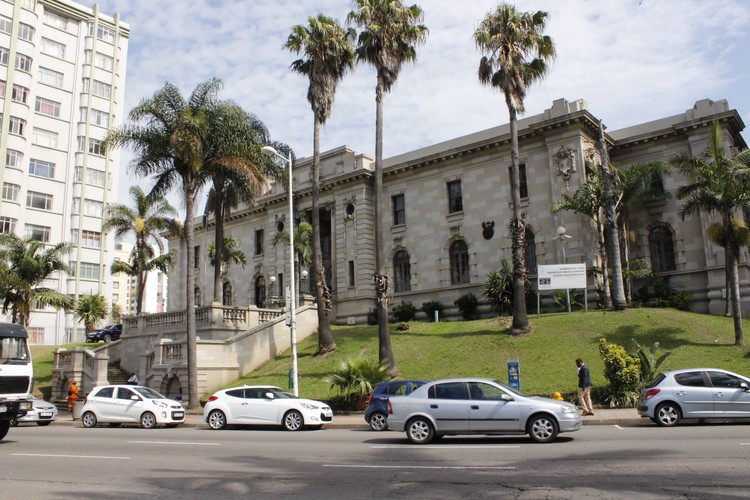
17 July 2025
ARTsolar has withdrawn its application in the Durban High Court and tendered to pay the costs of those it gagged in an interim order granted in March. Archive photo: Nomfundo Xolo
Solar panel manufacturer ARTsolar has thrown in the towel in its controversial battle against three “whistleblowers” and a journalist. The company had successfully gagged them by court order from making or reporting on “defamatory” allegations that ARTsolar was importing and not locally manufacturing its solar panels.
The interim gagging order was granted in March by Durban High Court acting Judge Perlene Bramdhew against businessman Brett Latimer, two former employees of ARTsolar, and journalist Bongani Hans.
The date to determine whether the order should be confirmed or discharged was set for 29 July. But this week, ARTsolar withdrew the application, and tendered to pay the costs of Latimer, Hans, and former employees Kandace Singh and Shalendra Hansraj.
It also tendered to pay the costs of the Industrial Development Corporation, which entered the legal fray because it had provided R90-million funding to ARTsolar to set up its “proudly South African” factory in New Germany. The IDC wanted to interview Latimer about his claims.
The initial court order specifically barred Latimer from communicating with the IDC.
The IDC launched its own urgent court application, successfully arguing that it should have been joined in the proceedings, and that the order was stifling an investigation into the matter on the instruction of Minister of Trade, Industry and Competition Parks Tau. The order was amended to exclude reference to the IDC.
The shift in ARTsolar’s stance came after it appointed new attorneys last month.
Mohamed Mota, partner at Cox Yeats, confirmed the withdrawal. He said his client had no comment “at this stage”.
Because the case had implications for freedom of expression, the amaBhungane Centre for Investigative Journalism had applied to be admitted as an amicus curiae.
Managing partner Sam Sole said the withdrawal was a “bittersweet victory”.
“The facts of the case make it clear the order should never have been granted and amaBhungane was looking forward to urging the court to give decisive direction to other presiding officers about the very narrow and limited circumstances which could justify such pre-publication censorship,” he said.
“We had also intended to remind the court that an effective press is a ‘public sentinel’ and is a conduit for the public’s right to receive and impart information, meaning curbs on the media effectively limit the rights of the general public.
“This places a duty on the courts to be exceptionally vigilant in ensuring adherence to the legal safeguards of press freedom, especially where the public have no voice in the proceedings – as in this case, where the media house did not initially come to court.”
Sole said there were various reasons why a journalist may fail to effectively oppose such an application, especially an extremely urgent one, such as a lack of timely access to adequate (or any) legal representation.
“We hope the publicity engendered by this case will discourage other parties from running to court and will also encourage presiding officers to exercise due care and caution when faced with similar cases,” Sole said.
ARTsolar’s urgent application was sparked by Hans sending questions, based on Latimer’s allegations, to the company.
Latimer, a former client of ARTsolar, alleged that he had been duped into believing that the panels were locally manufactured when they were in fact imported from China.
He was backed up by Singh and Hansraj, who previously worked for the company.
On the back of the gagging order, Latimer obtained a subpoena against Turners Shipping and, in a supplementary affidavit, he said the shipping documents (bills of lading) showed that the company imported 99% of its panels.
Latimer’s attorney MS Omar said, “The interim gagging order was a drastic and draconian violation of my client’s fundamental rights of freedom of expression as enshrined in section 16 of the Constitution. The over broad interim order plainly prohibits permissible statements, based on truth and public interest, and failed to take account of the high threshold for a defamation interdict.”
The application will be formally withdrawn in court on 29 July.